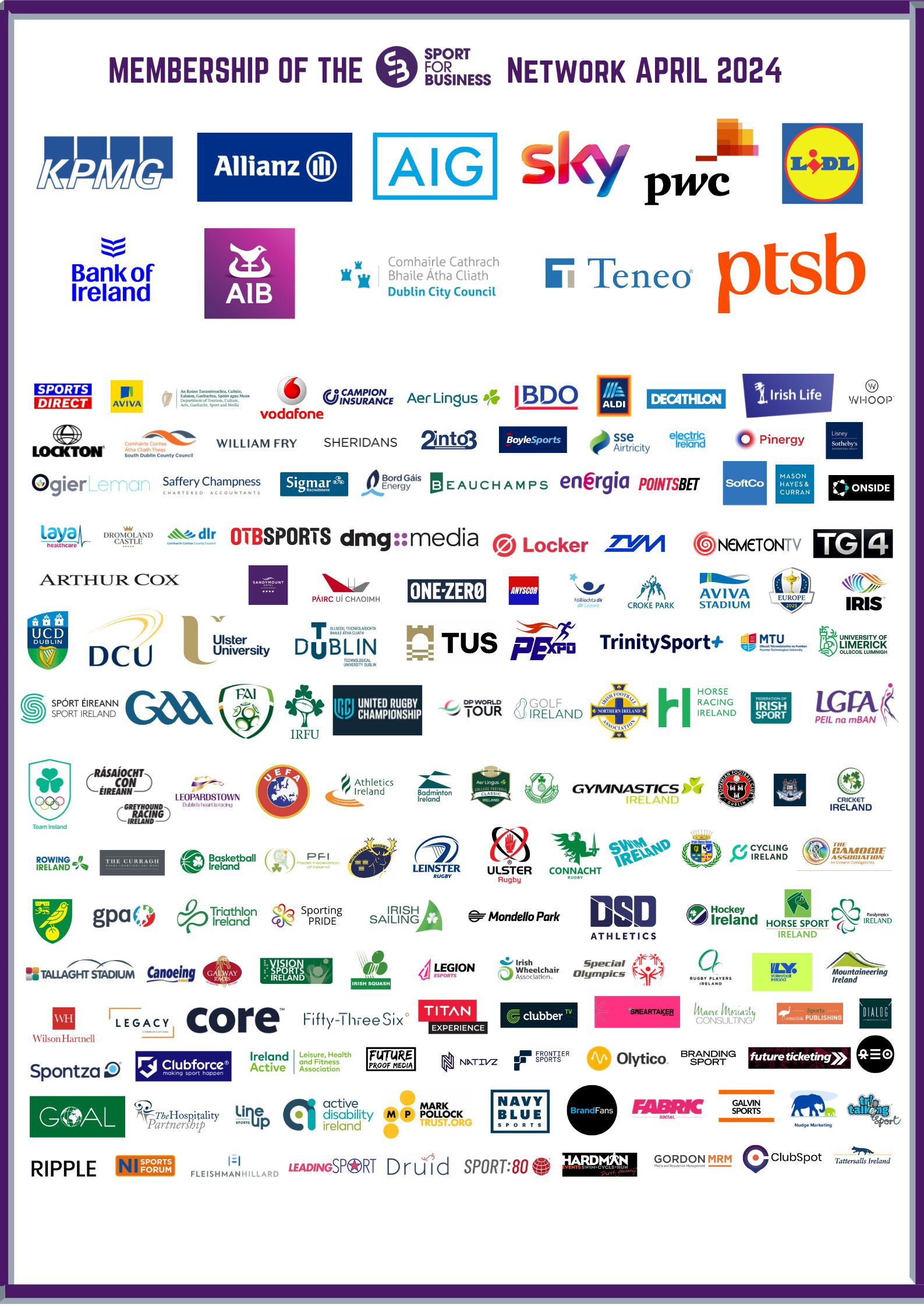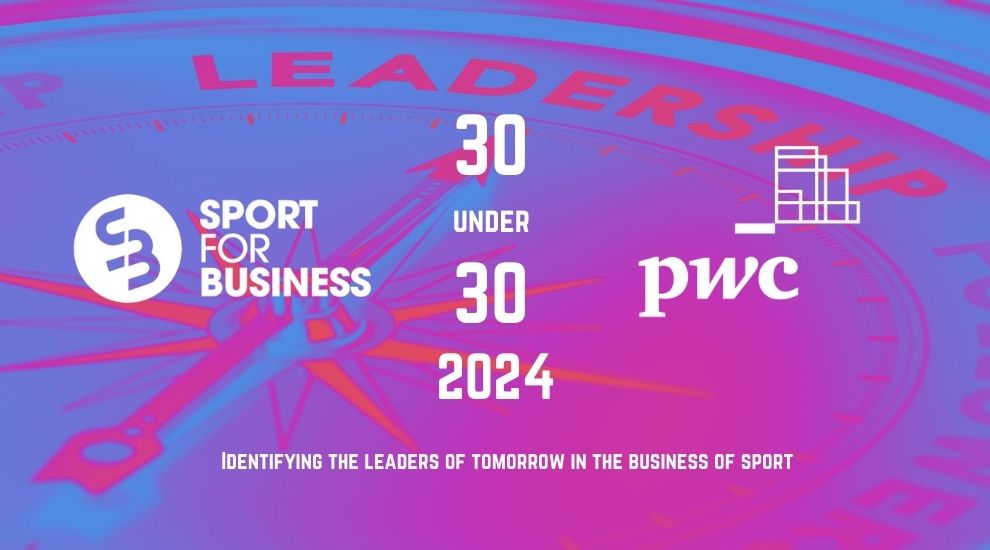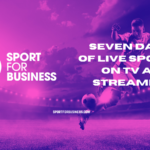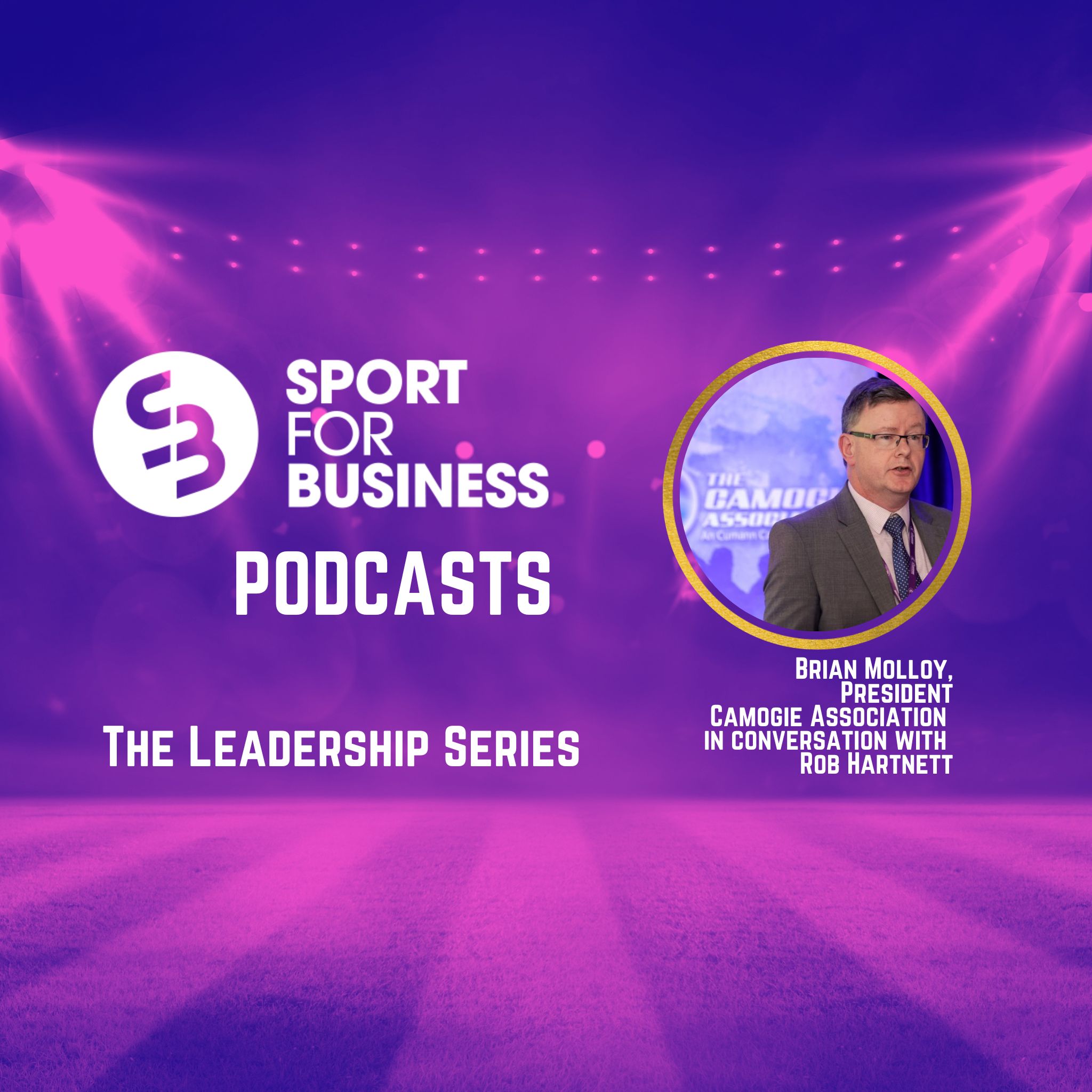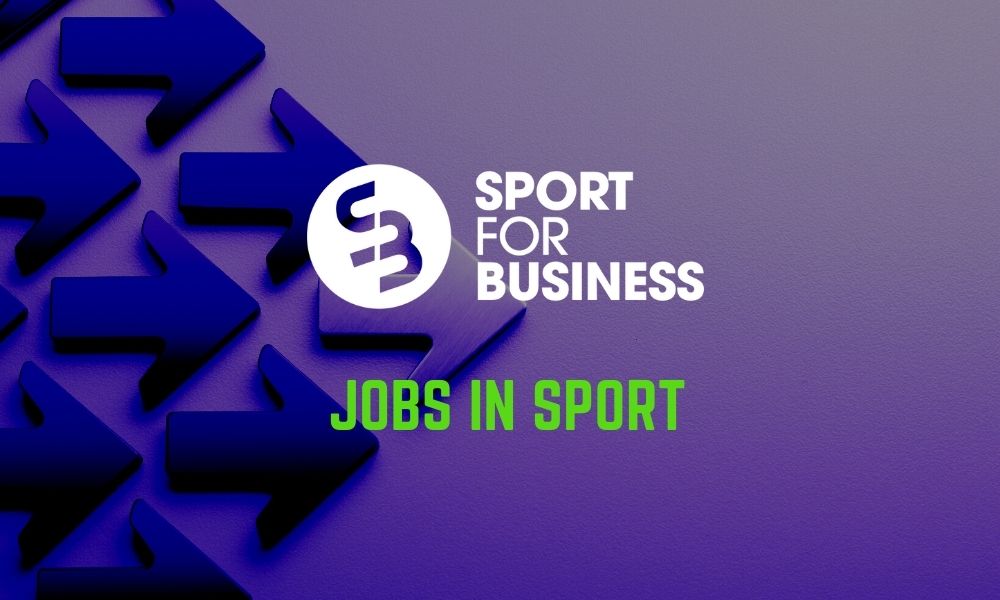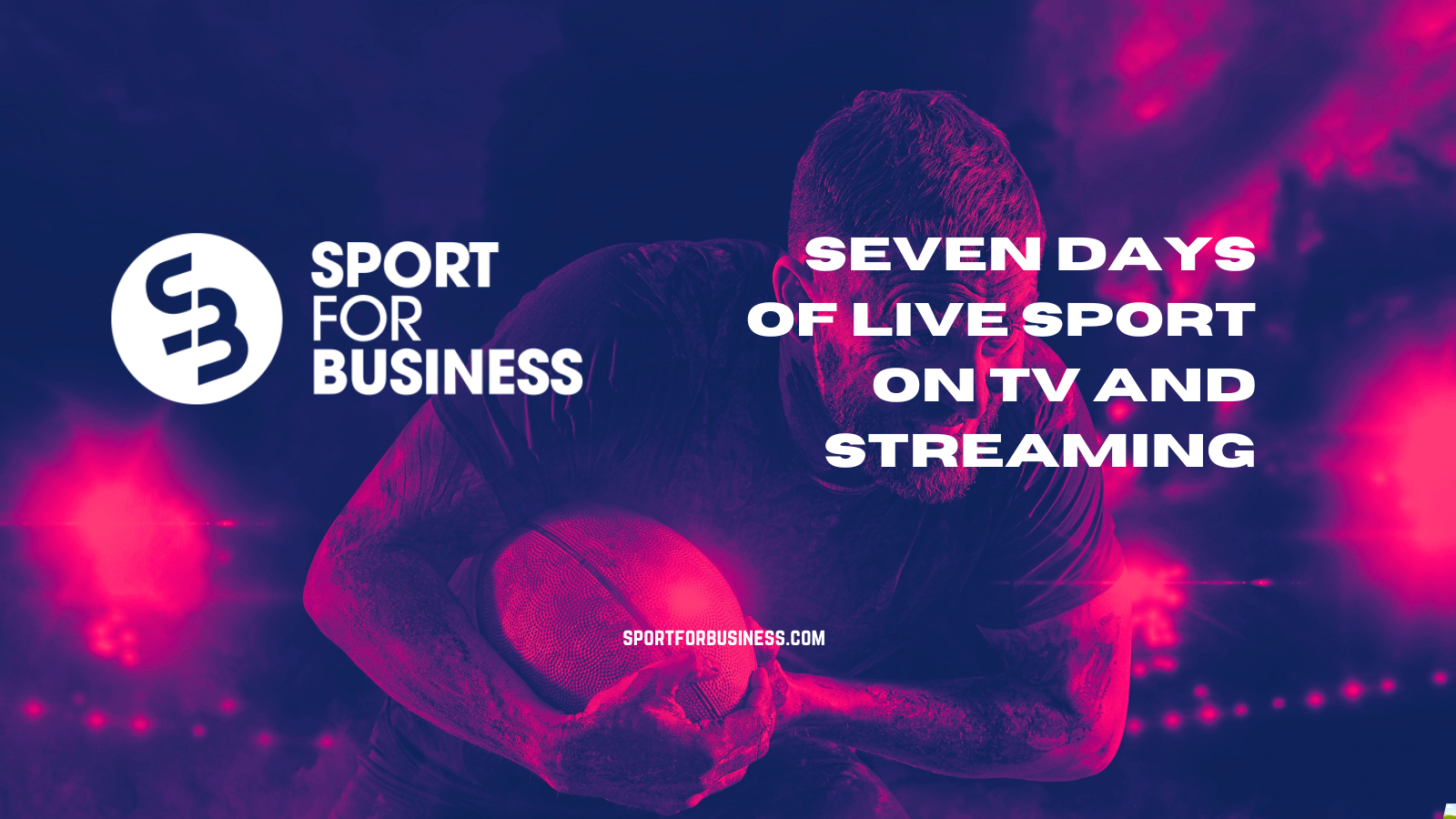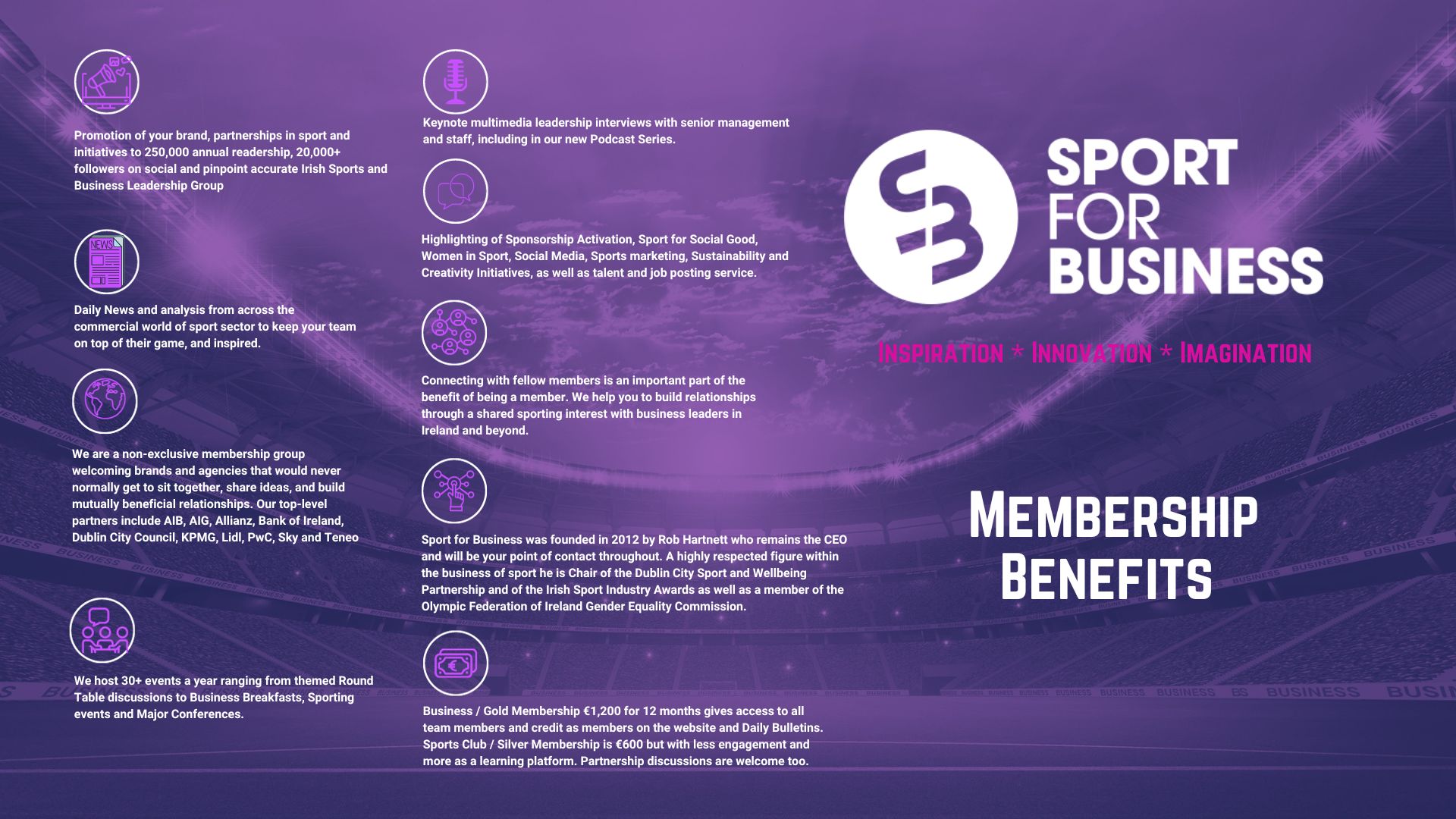The issue of professional athletes and Covid-19 vaccines is continuing to generate heated debate across many different sports.
Much of football’s recent international break was dominated by widespread reaction to comments made by Republic of Ireland and West Bromwich Albion player Callum Robinson.
Robinson is not the first and is unlikely to be the last, high-profile professional athlete to publicly state that he does not intend to get vaccinated, but he has become somewhat of a symbol of the growing concerns within professional football around the relatively low uptake compared to other sports.
We spoke to Jonny Madill and Ollie Raggett from the Sports Group at Sport for Business member Sheridans in London to dive into some of the legal issues that surround this contentious subject.
How widespread is this issue around the sporting world?
In the international context, Novak Djokovic’s involvement in the Australian Open this coming January remains in doubt given his publicly stated opposition to vaccines and the restrictions in place in the state of Victoria. Meanwhile in the NBA, Kylie Irving is unable to feature in matches or training for the Brooklyn Nets given the regulations in place in New York.
Clearly, the legal and governmental position will differ across jurisdictions, but from a UK and Ireland perspective: the approach to vaccines adopted by sporting clubs, bodies, leagues and organisations needs to be understood in the context of the raft of legal issues at play.
It was recently reported that fewer than half of first-team players at most Premier League and English Football League clubs have been vaccinated. This is at odds with the uptake across the UK and Irish population more generally and is despite numerous high-profile managers in England (most notably Jürgen Klopp and Pep Guardiola) voicing their strong views in favour of players supporting the vaccine push.
Conversely, however, sports like rugby union are in a much stronger position (in Ireland the IRFU confirmed last week that its current vaccination rate across its professional team structures which includes players, coaches and support staff is 99.2%). Internationally, the NBA is reported to have a 95% double vaccination rate amongst its player body, and have been praised for its efforts in driving the culture within the locker rooms of its teams. Like the NBA, the NFL has a similarly high rate and has adopted a tougher approach by introducing stringent league-mandated protocols for unvaccinated players.
Whatever the reasons for the differing rates across sporting codes (and there has been no shortage of speculation on the matter), there are two key questions that should first be addressed from a UK and Irish legal perspective when considering the position sporting clubs and bodies find themselves in.
Can sports force athletes to get vaccinated? Or if not, can they at least make vaccinations a pre-condition of competing or being selected?
Before getting into the myriad of legal issues that underpin this nuanced subject, it is worth stepping back and considering – as a starting point – the overriding duty that sporting organisations have towards their participants.
Whether a professional sports club or national governing body, or local activity provider or regional/county association, the same principal duty exists: a duty to take all reasonable steps necessary to ensure the safety and wellbeing of its participants (whether players, coaches, officials, staff, volunteers or otherwise). This duty has become particularly relevant in the midst of sport’s ‘return to play’ post Covid-19.
Clearly this duty of care will differ depending on the relevant sporting environment and the identity and health status of the individuals involved (and in parallel, the risks of transmission).
On the face of it, the idea of a vaccine ‘passport’ (or making vaccines mandatory for participants) would seem an obvious and sensible means of sport minimising the risks of transmission and discharging the duty mentioned above to the highest possible standard.
However, legal risks or ‘barriers’ to sports making vaccines ‘mandatory’ (at least in the UK and Ireland context) are significant. And it is these issues that are preventing, for example, Premier League football clubs and national associations from taking a tougher stance on those players who are opting out.
What are the legal barriers to making vaccines mandatory for athletes in the UK and Ireland?
Neither the UK nor Irish governments have published any guidance which focuses specifically on COVID-19 vaccinations and the implications of sports participation.
If they do so, of course, that will be the starting point for sporting bodies and organisations. Until then, however, there are no statutory provisions that exist which give sports an obvious and clear power to force individuals to be vaccinated.
In addition to this, any decision by a sporting organisation (whether professional or amateur) to make vaccines a mandatory requirement of an athlete competing would give rise to a number of key legal risks.
Refusing to select a player or allow them to compete could leave an organisation open to legal challenges on discrimination grounds, for example, if the relevant individual refused the vaccine because of a religious belief, pregnancy, age, or a health condition that could constitute a disability.
Any policy or approach which discriminates against a group that shares a protected characteristic must be justified by the organisation as a proportionate means of meeting a legitimate aim.
Making vaccinations a condition of participating potentially impacts a number of “protected groups”. In the English football context, it is worth noting that clubs must comply with the FA Equality Policy, which requires compliance with the Equality Act 2010.
An individual’s freedom of choice could be limited if participation is conditional on being vaccinated. Individual players, just like other members of society, have a general right to freely refuse any intrusive medical treatment.
Making vaccines mandatory would mean handling sensitive health data so could give rise to data protection and privacy risks.
Then there are other employment law considerations for clubs and organisations too (for example in the context of an athlete’s player contract with his or her club; or central contract with his or her governing body), as well as other ethical and moral considerations too (especially in a multi-cultural and diverse sporting context like professional football).
The approach taken by a sporting organisation should ultimately be proportionate in that it should go far enough to meet the relevant standard of care mentioned above, but should not go so far as to become a disproportionate barrier to participation.
Making vaccinations mandatory for all participants of a club or league as a blanket rule would, in most cases, be a disproportionate response, particularly where the UK and Irish governments have given a general go-ahead to participation regardless of individuals’ vaccination status, and given the range of legal risks.
What other positive steps can sports take?
Clubs, leagues and sporting bodies are in a delicate and sensitive position, especially those at the elite end of the spectrum where decisions are scrutinised by the media, and where public health consequences are more significant given attendances at venues.
The statement released by the Football Association of Ireland in response to the comments made by Callum Robinson hit the right tone and reflects the approach taken by most rights holders across the sporting spectrum in the UK and Ireland: i.e. “we have encouraged all our players at all levels of the game to be vaccinated but we respect and must accept the right of all individuals to make a personal choice on Covid-19 vaccination.”
There are, however, other positive steps organisations can be taking (and indeed many are taking), while still stopping short of making vaccines mandatory.
Communicating transparently with players about the importance of being vaccinated (both on an individual and collective level) might seem like a simple point, but can be easily overlooked.
There is also the importance of seeking to understand reasons for refusal, to see if any concerns can be alleviated (whilst also respecting players’ right to privacy).
The role of players and coaches as influencers and advocates in dressing rooms cannot be underestimated. Premier League clubs with managers who have been highly supportive of the vaccine have seen a greater uptake by players (for example, Nuno Espírito Santo was instrumental in driving the 100% vaccination rate amongst the Wolves squad prior to his departure to Tottenham, and Pep Guardiola, Mikel Arteta, Steve Bruce and Graham Potter have also spoken publicly on the matter). The higher vaccine rates among, for example, the NBA (95%) are believed by many to be driven by influential figures such as LeBron James sharing his decision to be vaccinated. It is incumbent on clubs and organisations to leverage the role of advocates and their voices within player communities and channel it in the right way.
Many clubs and organisations have led the way by encouraging and incentivising athletes to be vaccinated (including building time into schedules as needed for appointments). Covid-19 protocols at stadiums and training grounds are more likely to be relaxed if vaccination rates amongst the playing community increase, so asides from the obvious health benefits, there are clear incentives for squads of players to act in unison.
There are also wider initiatives that leagues and governing bodies have been exploring. For example, the Premier League are reported to be considering whether a ‘rewards’ system (perhaps akin to the end-of-season Fair Play standings) is a possibility (whereby clubs and players who are most ‘Covid-compliant’ would be somehow rewarded). This ‘soft’ incentivisation would not inhibit the personal choice of players but rather help to frame the taking of a vaccine as a more holistic responsibility for the wider benefit of the club (and community) as a whole.
Notwithstanding all of the above, the importance of continually looking at alternative measures to mitigate risk of transmission (such as testing, social distancing, ventilation, track and trace etc.) should not be forgotten.
Is there a solution or is this likely to run through the Winter?
The intense scrutiny placed on the decision-making of key stakeholders across sport (whether clubs, leagues, associations or governing bodies) due to their powerful influence within society has driven much of the ongoing vaccine debate in recent weeks, which is unlikely to subside anytime soon.
As the build-up to next year’s men’s FIFA World Cup in Qatar ramps up, the ‘international travel’ debate will only intensify. Fully vaccinated Premier League players returning this week to their clubs in England from international duty will be allowed to train and play during the ‘quarantine’ period, but the wider issue of overseas travel and professional sport is both sensitive and complex and is continuing to evolve.
Whilst the legal position in the UK and Ireland is fairly clear around the difficulties any organisation will face in requiring individual athletes to be vaccinated before competing, the wider solutions to the issues (especially in the context of football given its comparatively low uptake) are far less straight-forward and much more nuanced.
Jonny Madill and Ollie Raggett are lawyers in the Sports Group at UK and Ireland sports, media and entertainment law firm Sheridans. They advise athletes, clubs, governing bodies, federations, broadcasters, sponsors, agencies and media companies.
“A powerful and influential network of information and collaboration”
Download our latest membership brochure here.
Sport for Business Partners

















